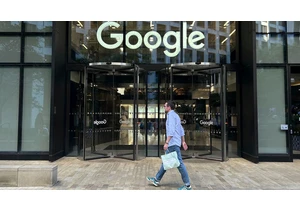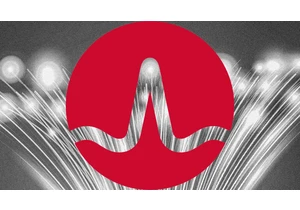The Federal Trade Commission is suing to block the graphics chip maker Nvidia from acquiring the mobile chip design powerhouse Arm from its current owner, Softbank. The proposed merger, and the FTC’s case to block it, represent a number of firsts for the tech industry and its regulators. The $40 billion merger, which was announced in September, is being called the largest in chip industry history. If approved, it would send seismic waves through that industry and position Nvidia as an essential technology provider to much of the rest of the industry, including its own competitors. The case is the FTC’s first big antitrust action under the leadership of tech critic and antitrust firebrand Lina Khan. The 32-year-old Khan was nominated to the post of FTC chair by President Biden earlier this year after being a Congressional staffer and then an associate professor at Columbia law school. She has signaled an interest in the FTC taking a more aggressive stance toward big tech mergers. On Khan’s watch the FTC has already (re)filed a lawsuit against Facebook over the social network’s past acquisitions, and is currently investigating Amazon’s market practices. Both Facebook and Amazon are concerned enough about Khan to request that she recuse herself from present and future actions against the companies. The outcome of Nvidia case could be a big piece of her legacy. More importantly, the case may be the first major test for a new way of looking at antitrust. Higher bar for mergers Since the 1970’s U.S. courts have taken a very hands-off approach toward scrutinizing big mergers. The courts’ main litmus test for a merger is whether it raises or lowers prices for consumers. If it could be shown that prices in the near term wouldn’t go up, mergers tended to go through. The FTC says that combining the companies would present a fundamental conflict of interest.Khan and her team at the FTC see this as a narrow way of looking at a merger’s real effects. First of all, judging tech mergers based purely on price effects makes no sense because many tech companies such as Facebook (now Meta) and Google offer their services for free. Khan and other progressives believe competition among the companies in a given market is also very important to the welfare of consumers. The FTC worries that Nvidia’s merger with Arm may give the new company an advantage against others in the chip market–and an opportunity to raise chip prices later on. If the FTC manages to block the merger, the case may usher in a tough new standard for getting tech mergers approved. ‘Switzerland’ no more Arm has traditionally played a “Switzerland” role in the chip industry, licensing its technology to an array of companies, including Nvidia as well as Apple, Qualcomm, Samsung, Mediatek, and others. Given that Nvidia competes with many of the companies that are Arm’s customers, the FTC says that combining the companies would present a fundamental conflict of interest. “This proposed deal would distort Arm’s incentives in chip markets and allow the combined firm to unfairly undermine Nvidia’s rivals,” said Holly Vedova, the director of the FTC’s competition bureau, in a statement. The FTC’s complaint takes pains to make the connection between lacking competition in the chip markets with higher consumer prices. ” . . . the proposed merger would give Nvidia the ability and incentive to use its control of this [Arm] technology to undermine its competitors, reducing competition and ultimately resulting in reduced product quality, reduced innovation, higher prices, and less choice, harming the millions of Americans who benefit from Arm-based products,” the FTC says in a statement paraphrasing the language of the complaint. Nvidia has seen tremendous growth from selling its graphics chips into data centers to run machine learnings applications. That growth put it in a position to buy Arm, and Arm-based CPUs also have a big and growing presence in data centers. “The FTC’s lawsuit should send a strong signal that we will act aggressively to protect our critical infrastructure markets from illegal vertical mergers that have far-reaching and damaging effects on future innovations,” Vedova said.
Chcete-li přidat komentář, přihlaste se
Ostatní příspěvky v této skupině

As Big Tech kicks off its quarterly earnings season this week, the industry’s bellwether companies have been thrust into a cauldron

Weeks ahead of his death, Pope Francis dedicated this month’s prayer intention to

Remember when TikTok went nuts for “Dubai chocolate”? Well, that fervor is now causing an international shortage of pistachios.
The trend took off in 2023 when food reviewer Maria Vehera

Google will confront an

Instagram has begun testing AI-powered technology designed to proactively identify accounts it suspects belong to teens—even if the user has listed an adult birthdate—and place them under special

Behind the curtain of generative AI breakthroughs and GPU hype, a quieter transformation is taking place. Data center architecture and its prowess have become a fierce battleground as AI models ex

Amid the video podcast boom, Netflix is making its own move into the space.
